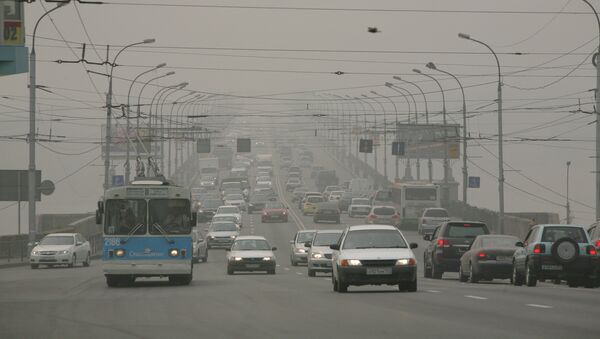MOSCOW (Sputnik) — On Tuesday, WHO released its estimates regarding the impact of air pollution on people's health, saying that 92 percent of the world’s population lived in places where air pollution indicators exceeded the safe level.
"The [WHO] report contains figures about premature deaths caused by air pollution, and the indicator for Russia is too high, which is exaggerated by three or four times. According to the report, about 120,000 people [die in Russia annually due to air pollution], though, the more relevant figure is three-four times lower. Nevertheless, we should not rest on our laurels," Alexei Kokorin told RIA Novosti.
According to the WHO report, in 2012 about 6.5 million deaths (11.6 percent of all global deaths) were linked to both indoor and outdoor air pollution. Low and middle income countries suffer the most from air pollution-related deaths, with 90 percent of such deaths recorded there, the organization's report said.





